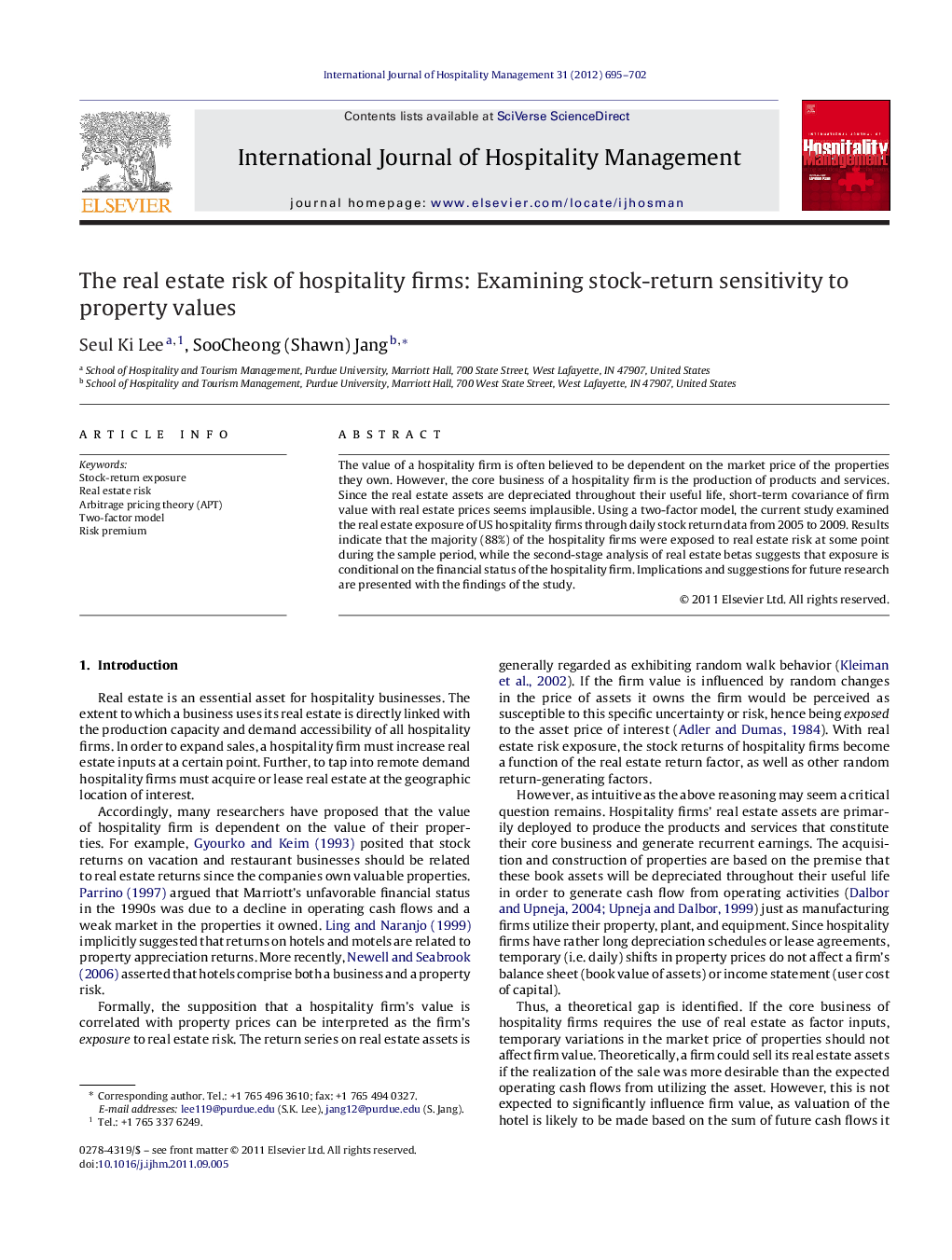| Article ID | Journal | Published Year | Pages | File Type |
|---|---|---|---|---|
| 1009908 | International Journal of Hospitality Management | 2012 | 8 Pages |
The value of a hospitality firm is often believed to be dependent on the market price of the properties they own. However, the core business of a hospitality firm is the production of products and services. Since the real estate assets are depreciated throughout their useful life, short-term covariance of firm value with real estate prices seems implausible. Using a two-factor model, the current study examined the real estate exposure of US hospitality firms through daily stock return data from 2005 to 2009. Results indicate that the majority (88%) of the hospitality firms were exposed to real estate risk at some point during the sample period, while the second-stage analysis of real estate betas suggests that exposure is conditional on the financial status of the hospitality firm. Implications and suggestions for future research are presented with the findings of the study.
► Recent studies on asset-pricing models advocate that real estate is a common/non-diversifiable risk source. ► Meanwhile, the real estate dependence of hospitality firms is notably high, with average real estate holdings of hospitality firms exceeding 60% of their total assets. ► Using a two-factor model, the current study finds the majority of hospitality firms exposed to real estate risk at some point during the period 2005–2009. ► Second-stage analysis of real estate beta coefficients suggests that real estate risk is conditional on the firm's financial status, implying the analogue between real estate risk and liquidity risk.
